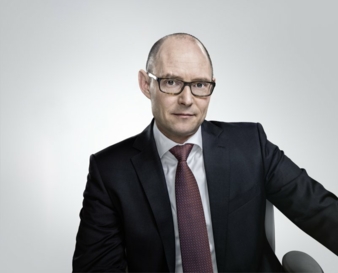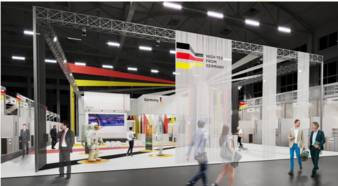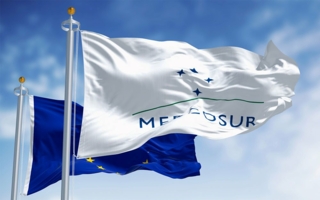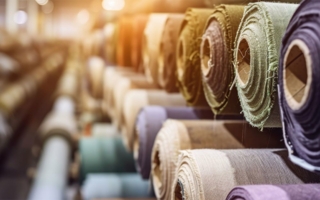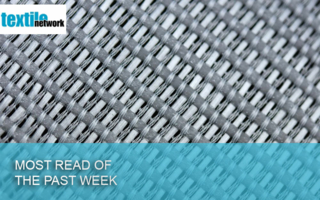07/05/2018 – High-Tex from Germany — auf Deutsch lesen
An interview with Marc Lorch, Exhibitor President
The presentation platform for companies from the German textiles and apparel industry in Atlanta from 22-24 May 2018 offers great opportunities.
textile network spoke to Marc W. Lorch, Exhibitor President of the industry show High-Tex from Germany about opportunities for German textiles companies in the USA.
textile network: Mr Lorch, you have been appointed Exhibitor President of the participating companies. What exactly does this mean? And what does it involve?
Marc Lorch: The German Pavilion offers medium-sized textiles companies the perfect platform for presenting the full breadth of their expertise. Besides the exhibitors’ stands, the show features an exciting supporting programme along with an opening press conference and a reception. In my role as Exhibitor President, it’s my job to communicate the concerns and ambitions of the German companies whilst also representing the interests of our industry.
tn: What makes this show worthwhile?
ML: “Made in Germany” is the world’s strongest quality label for goods and services, also in the field of technical textiles. In many areas, technical textiles are pioneering materials. German textiles companies are important suppliers for many sectors including the automotive, aviation, aerospace, medical and geo-technology industries. Germany is still the world’s market leader in technical textiles. German textiles and textile processing machines are highly innovative with German companies spearheading many developments.
tn: What are the exhibitors’ expectations in Atlanta?
ML: Techtextil is the most important trade fair on the North American continent for our products. Visitors can come here and experience the entire supply chain – from research and development to all the value-adding processes right the way through to the final applications. It’s important for us to be there to talk to attendees and to engage in a dialogue about potential challenges.
tn: US foreign policy is currently rather charged. How are German exhibitors dealing with this?
ML: Experience has taught me that our industry must take its fate into its own hands, do its homework properly and be prepared for all eventualities. We mustn’t be deterred as we continue down the path we have set out on with our partners – if we’re faced with a change in circumstances, driven by politics, we’ll have to find appropriate solutions. Previous fairs in the US have shown that US companies are taking a similar stance and, for the time being at least, it’s business as usual.
tn: Which of the 50 US federal states are of greatest importance to the German textiles industry and why?
ML: Like in Europe, it’s impossible to pick out a single state. There are, of course, the usual suspects that are home to specific industries, such as the automotive industry and its suppliers in Detroit / Michigan. Generally speaking, our industry serves so many different niches that flexible production is possible almost anywhere.
tn: How important are the other countries in the Americas for Germany’s textiles industry?
ML: The US is the biggest target market for German exports outside Europe. The sheer diversity of its industry and the good economic outlook are obviously improving our chances of increasing sales. German-made products are popular in the US. Generally speaking, the entire NAFTA region constitutes an important sales market with considerable potential for German textiles companies. This is reflected in the many expansion strategies and partnerships arising with the United States.
Mr Lorch, many thanks for talking to us
The questions were posed for textile network by Iris Schlomski

